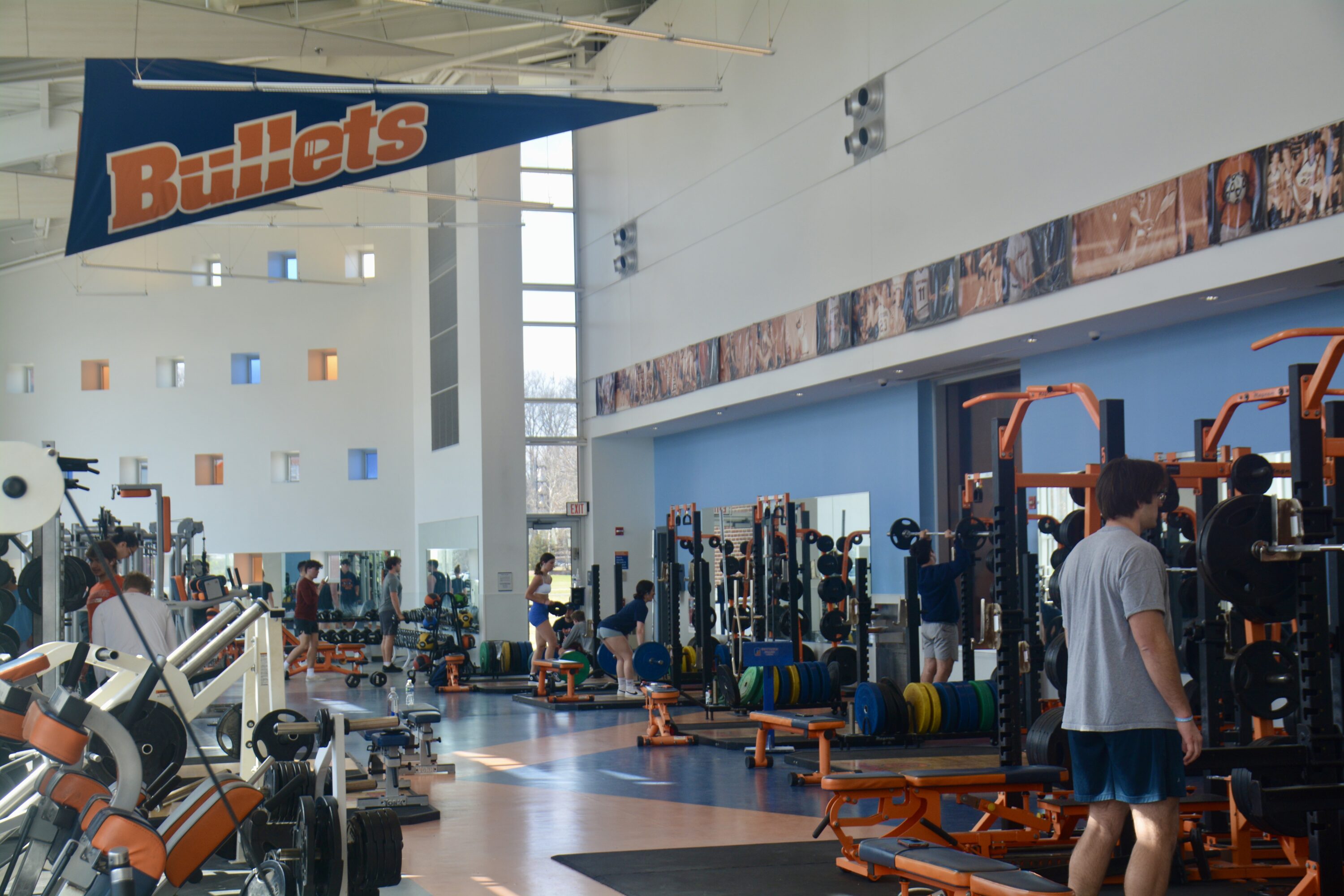By Charlie Miller, Staff Writer
It is common knowledge that Gettysburg College student athletes partake in training sessions for their respective sports. There are many nuances and procedures that athletes implement to improve performance. Coach Michael Hoyt spoke to The Gettysburgian about the approach of the program, as well as measures they take to ensure Bullet athletes are in the best position to succeed.
Hoyt serves as not only the head of strength and conditioning, but also as defensive coordinator for Bullets football. Coach Victor Lopez was recently hired to oversee strength and conditioning and has had a major impact. Prior to his hiring, strength and conditioning was primarily run by Hoyt, with assistance from assistant coaches in other sports.
Hoyt highlighted the difference Lopez made, not just because it opened up more time for the coaches to focus on their own sports but that “prospective athletes will know that we have a specific coach just for fitness.” In collegiate recruiting, it helps to have every bell and whistle at the ready.
The program is part of the conversation in the recruiting process of any sport, but Hoyt emphasized it being “a big part of what we talk to football prospects about.” Strength and conditioning is typically one of the first things a recruiter asks about.
To get the results on the field, you have to start in the gym. Hoyt outlined two important goals of the program that are presented to recruits: injury prevention and performance. Hoyt put it simply that strength and fitness equals health.
“The stronger you are, the more flexible you are, explosive you are, the less apt you are to be injured,” said Hoyt.
Building strength and fitness is also important for performance. Hoyt said that Gettysburg wants to get the “most out of the genetic potential of the athletes” that they can.
Hoyt reinforced that the program is always looking to the future, trying to see what they can do better. One of the things that has come up in discussions is an athlete-only weight room. Hoyt identified multiple benefits of this addition, with one being that athletes would have their own space without interruption to train. An athlete-only weight room would also accommodate the majority of students that often find the gym crowded with sports teams coming in and using the equipment.
Hoyt believes an athlete-only weight room would create less frustration for everyone. He added that he hopes this can be implemented in the “very near future.”
Athletes are also able to streamline their workout data via an app called Teambuilder, which allows coaches to remotely monitor their progress. The app has been used by Gettysburg coaches for several years.
“This is nice because when the athletes leave for breaks… where a lot of the sports aren’t here [on campus], they can still seamlessly do their workouts,” stated Hoyt.
Many college athletes are at home for an extended period of time during the winter and summer holidays. Teambuilder ensures that they stay on track and can therefore attain peak performance.
“This platform has been very valuable in keeping them engaged, just as if they were on campus,” said Hoyt.
In addition to Teambuilder, Gettysburg athletics recently invested in ZoneIn, a nutrition app that allows athletes to keep track of their dietary needs. This will help with recovery, which in Hoyt’s opinion, is one of the most important parts of conditioning. Hoyt compared an athlete not properly recovering to riding a bicycle with the brakes on.
The hiring of Coach Lopez and these apps will contribute to the more holistic, year-round approach to fitness that Gettysburg athletics has pursued. Gettysburg’s goal is always to make athletes stronger and to condition their programs into powerhouses. Being a college athlete is a 365 day-a-year job, and the strength and conditioning program is prime evidence of that.
This article originally appeared on page 7 of the December 2023 edition of The Gettysburgian’s magazine.

